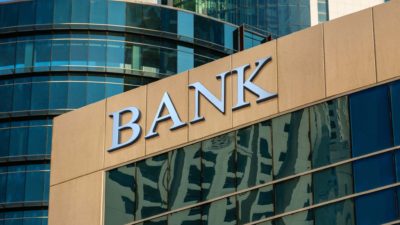The Commonwealth Bank of Australia (ASX: CBA) share price is up almost 2% at $99.98 in Tuesday afternoon trading.
It's been a fairly difficult 12 months for CBA shareholders who have watched their positions trade sideways for much of this time.
Now, with the share rebounding from lows and rallying 6% in the past month, the question is whether the CBA share price represents compelling value or not.
Is CBA good value right now?
One key point is that price doesn't equal value. Just because the CBA share price has traded down in recent months, or rallied in October, doesn't necessarily reflect measures of value. We have to dig deeper than that.
Firstly, as seen on the chart below, the CBA share price has tracked the Vaneck MSCI International Value ETF (ASX: VLUE) – a proxy for value performance – closely this last year.
However, it has broken away this month, which raises some further questions. Let's continue digging.

Corporate value is measured in terms of earnings and return on invested capital. While there are various calculations to derive this, they can be measured in shorthand using recognised multiples or ratios.
Multiples such as price-to-earnings (P/E), price-to-cash flow (P/CF), and price-to-book (P/B) ratios are also useful in making comparisons in the banking space.
As seen in the table below, CBA is trading above its banking industry peers at a P/E of 18.12 times and is also the most 'expensive' when looking at its P/B of 2.29 times.
| Company Name | P/E | ROE % | P/B | Net Margin % | P/CF |
| Commonwealth Bank of Australia | 18.12 | 12.8% | 2.29 | 41.5% | 15.25 |
| Australia and New Zealand Banking Group Ltd | 11.40 | 10.9% | 1.16 | 35.2% | 10.96 |
| National Australia Bank Ltd | 15.38 | 11.1% | 1.62 | 40.2% | 14.39 |
| Westpac Banking Corp | 17.10 | 7.4% | 1.17 | 26.1% | 14.65 |
| Bendigo and Adelaide Bank Ltd | 11.06 | 7.5% | 0.72 | 30.0% | 10.03 |
| Bank of Queensland Ltd | 13.29 | 6.6% | 0.74 | 25.9% | 9.27 |
| Macquarie Group Ltd | 12.53 | 18.0% | 1.99 | 35.9% | 13.61 |
| Median | 13.29 | 11% | 1.17 | 35% | 13.61 |
It also trades above the peer group on a P/CF ratio of 15.25 times, versus the median 13.6 times.
Despite these shortcomings, the bank is the most profitable in terms of earnings. It secured a net profit margin of 41.5% and delivered a return on equity (ROE) of 12.8% from its FY22 results.
However, it's worth noting that not all banks within this list have reported their annual results for FY22.
So, compared to its peers, relative value in the CBA share price is mixed at present. But what about with respect to forecasts?
What do the brokers say?
It isn't so rosy for the bank in this department either, as seen below.
| Recommendation | 18-Jul-2022 | 18-Aug-2022 | 18-Sep-2022 | Current |
| Buy | 1 | 0 | 0 | 0 |
| Hold | 6 | 6 | 7 | 9 |
| Sell | 9 | 10 | 9 | 7 |
| Consensus price target [$] | 92.21 | 91.29 | 90.00 | 92.91 |
No brokers currently rate the share a buy while nine say it's a hold and seven rate the share a sell, according to Refinitiv Eikon data.
This is largely unchanged from previous months, however, the consensus price target of $92.91 has crept up since then.
In spite of this, the valuation is still around 7% below the current market price for CBA shares and, hence, doesn't represent value.
Alas, from this rudimentary analysis, it's difficult to find value in the CBA share price.
While there is some upside in earnings and profitability from the bank, other measures suggest it's a contrarian play.
The Commonwealth Bank share price is down 4% in the past 12 months.









